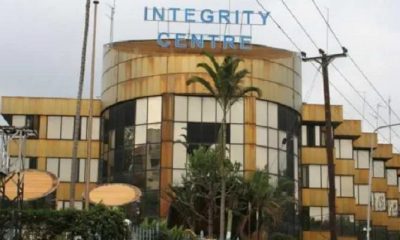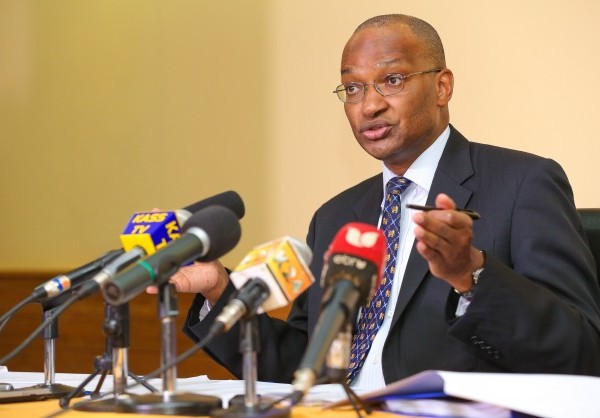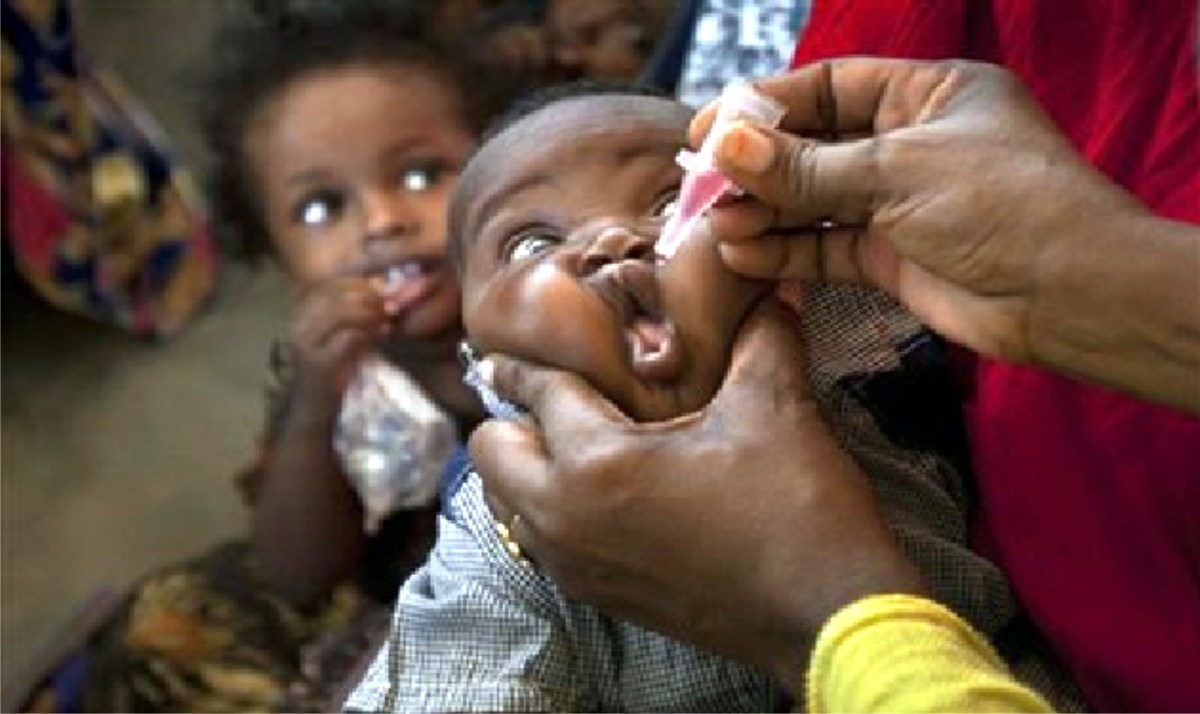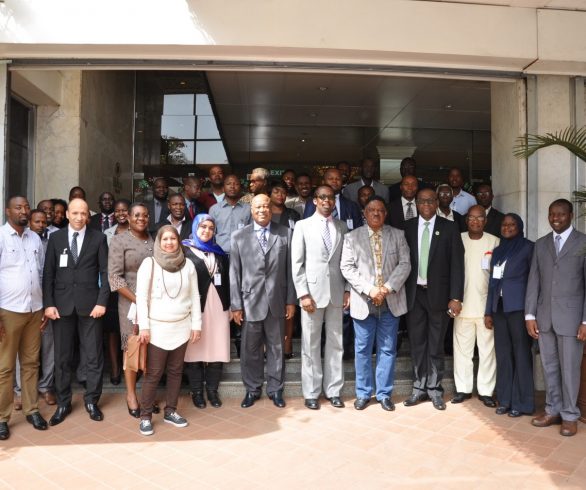Jobs/Appointments
Kenya’s Peter Mathuki Appointed as Head of EAC Secretariat
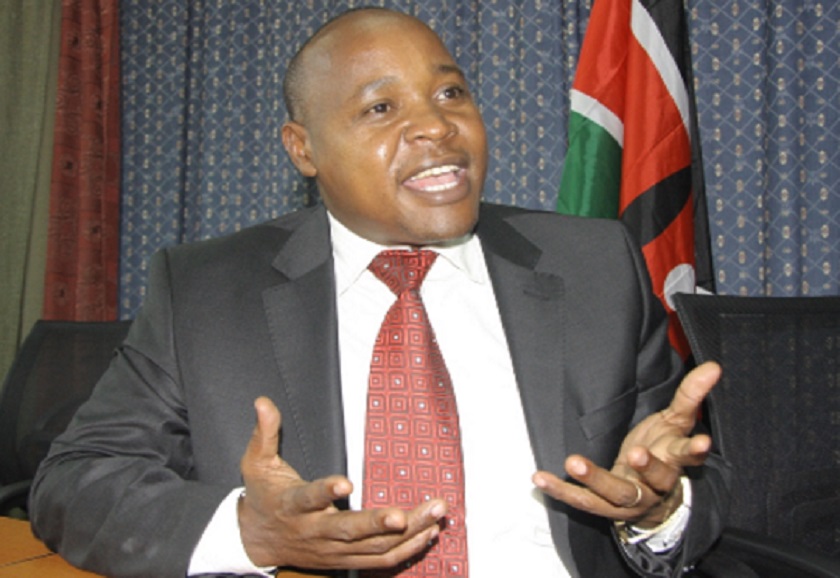
By Kester Kenn Klomegah
Kenya’s Peter Mutuku Mathuki has been appointed to head the East African Community (EAC), the regional bloc that brings East African countries under one umbrella.
Mr Mathuki replaces Burundi’s Liberat Mfumukeko, whose five-year term ended in early 2021. The post is usually rotational for five years.
As Secretary-General of the regional bloc, his key tasks include regional development, increasing inter-regional trade and to address investment possibilities for both potential internal and external investors.
According to his profile, Mr Mathuki has worked as Executive Director at the East African Business Council and consequently emerged as the top candidate for the position.
Over the years, he has been dealing with the corporate business sector and believed to have sufficient experience and contacts useful to address incessant wrangles in the East African Community.
Mr Mathuki previously served as a member of the East African Legislative Assembly, chairing the Committee on Legal Affairs and Good Governance as well as Accounts, Trade and Investment.
He has held political positions in Kenya and in international bodies including the International Labour Standards at the former International Confederation of Free Trade Unions (ICFTU-Africa), now ITUC-Africa, which he served as director. He was also a consultant for European Union programmes in Kenya.
The appointee comes on board as the African continent implements the Africa Continental Free Trade Area (AFCFTA) agreement, where he has been involved in the creation of the nascent African Business Council. Trading under this AfCFTA began on January 1, 2021, and opens up more opportunities for both local African and foreign investors from around the world.
He was taken on as a rectification strategy by Kenya, following a low-key leadership by Mfumukeko. Under his term, countries routinely skipped summits and member states wrangled over tariffs and political accusations. His secretariat faced financial constraints as member states delayed remitting their membership dues and donors reduced funding following allegations of corruption.
The latest report from the East African Community Secretariat for this year shows, for example, that South Sudan is the most indebted member of the EAC. It owes $24.6 million in funding towards the main budget even though it should pay up to $32.4 million including this year’s dues. It should also pay $2.8 million to the Inter-University Council of East Africa and another US$345,000 to the Lake Victoria Fisheries Organization.
The main budget usually funds the operations of the EAC Secretariat, the East African Court of Justice, the East African Legislative Assembly and other bodies dealing with specified fields. The Secretary-General is the principal executive and accounting officer of the community as well as the secretary of the summit and serves for a fixed period of five years.
The East African Community (EAC) first collapsed and was revived in November 1999 to strengthen ties between the members through a common market, a common customs tariff, and a range of public services to achieve balanced economic growth within the region.
Under the current Chairman, Rwanda’s President Paul Kagame, many businesses and market players perceive positively the region as stable for long-term beneficial business, investment and trade. Some political, social and economic challenges still remain to be addressed, though.
With a combined population estimated at 183 million, the region is relatively large. The East African Community is an intergovernmental organization composed of six countries in the Great Lakes region in Eastern Africa. The members are Burundi, Kenya, Rwanda, South Sudan, Tanzania and Uganda.
Jobs/Appointments
NMDPRA Denies Fake Employment Alert, Warns Unsuspecting Job Seekers

By Adedapo Adesanya
The Nigerian Midstream and Downstream Petroleum Regulatory Authority (NMDPRA) has clarified that the viral report suggesting that it is currently employing new staff is the “handiwork of fake recruitment syndicates established to mastermind fraudulent activities.”
In a Monday statement posted on its official X handle, NMDPRA expressed that it was compelled to publish the disclaimer to alert the public against such activities due to what it described as “exploiting young economically vulnerable and unsuspecting Nigerians perhaps into parting with huge sums of money for purported employment opportunities into the authority.”
“They do this by issuing bogus “Letters of Employment” and empty promises, as well as offering non-existent positions. These may well be the handiwork of fake recruitment syndicates established to mastermind these fraudulent activities.
“We wish to use this opportunity to state categorically that the NMDPRA is NOT conducting any recruitment exercise currently. Neither is the Agency undertaking any kind of employment in its services at any level. For the avoidance of doubt, any future recruitment exercise would be undertaken in accordance with extant rules guiding such exercises in the Nigerian Public Service,” the organisation emphasised.
The agency further advised the public to disregard these fake employment advertisements and urged them to visit its official website and social media pages to verify any recruitment claims.
The statement added, “In this regard therefore, we would like to advise the public and all Nigerians to ignore these spurious claims by unscrupulous people whose only objective is to defraud Nigerians and cast aspersion on the authority.
“We further advise that for current and up to date information regarding all our activities, kindly refer to our official corporate website: www.nmdpra.gov.ng as well as all our verified online social media outlets (i.e. Facebook, Linkedln and Instagram) for authentic information.”
Jobs/Appointments
Aradel Appoints Nnoli Akpedeye as Independent Non-Executive Director
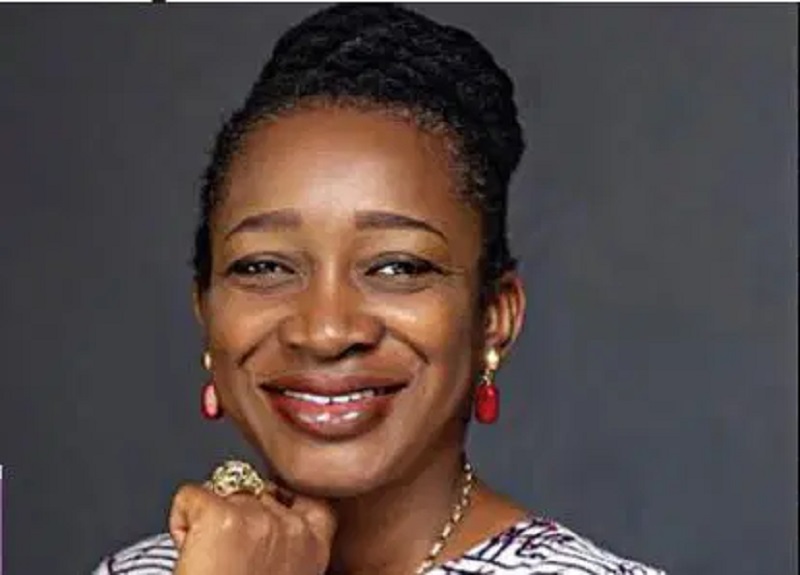
By Adedapo Adesanya
Aradel Holdings Plc has appointed Ms Nnoli Akpedeye as an Independent Non-Executive Director, effective February 2, 2026, following a resolution passed at the company’s board meeting held on January 28, 2026.
In a notice to shareholders, Nigerian Exchange (NGX) Limited, and the investing public, the company disclosed that the appointment is subject to ratification by shareholders at its next Annual General Meeting (AGM). The board also authorised the Company Secretary, Mrs Titiola Omisore, to notify relevant regulators and take all necessary steps to give effect to the decision.
Ms Akpedeye brings more than 36 years of multi-disciplinary experience spanning oil and gas, engineering, legal and arbitration services, and management consulting. Her career reflects a strong blend of technical expertise and strategic leadership, with competencies in management and strategy, business process engineering, organisational development and change management, as well as entrepreneurship development.
Until 2014, she served as Technical Planning Manager for Shell Exploration and Production Companies in Nigeria, where she led the execution of high-impact, mission-critical projects. Over the course of her career at Shell, she held roles across civil engineering design, planning and construction, project management, facility management, technical audit, and business planning and strategy, gaining extensive local and international exposure.
Beyond her corporate career, Ms Akpedeye is an entrepreneur and advocate for capacity building in engineering and energy. She runs Contego Servo Limited and Perfectus Laundi Limited, and in 2013, she launched the “Introduce a Girl to Engineering” programme aimed at encouraging secondary school girls in Nigeria to pursue careers in engineering and related STEM fields.
She is a Council for the Regulation of Engineering in Nigeria (COREN)-registered engineer, a Fellow of the Nigerian Society of Engineers (FNSE), and a past President of the Association of Professional Women Engineers of Nigeria (APWEN). She is also a founding member of the Women in Energy Network (WIEN) and serves as a passionate ambassador for science, technology, engineering and mathematics education.
In addition, Ms Akpedeye is the Chief Operating Officer (COO) of Compos Mentis Legal Practitioners and the Chairman of the Board of Trustees of the Compos Mentis Foundation.
Her appointment further strengthens Aradel Holdings’ board with deep industry knowledge, governance experience, and a strong track record in leadership and institutional development, as the company continues to pursue its strategic objectives within Nigeria’s energy landscape.
Jobs/Appointments
Geregu Power Chooses Sean Manley as Interim CEO

By Aduragbemi Omiyale
An interim chief executive has been appointed by Geregu Power Plc and he is Mr Sean Manley, with his appointment to take effect from Monday, February 2, 2026.
A statement from the power generating firm disclosed that his appointment is subject to the approval of the Nigerian Electricity Regulatory Commission (NERC) and the shareholders of the company at the next general meeting.
In the notice, the organisation expressed confidence that the appointee would use his wealth of experience and leadership to “add significant value to the company.”
Mr Manley is said to be “a seasoned power-sector professional with a proven track record in delivering complex energy projects in developing markets.”
He is armed with more than 30 years’ experience spanning sales, business development, project implementation, supply-chain management, and OEM-led delivery within the power sector.
Over the course of his career with Siemens, Mr Manley has developed deep technical and operational expertise in thermal power generation, covering plant construction, commissioning, major overhauls, and long-term operational support.
He is widely regarded as a practical problem-solver, with a demonstrated ability to close projects in challenging operating environments and brings extensive international experience and strong intercultural skills acquired across multi-jurisdictional engagements.
His areas of expertise include the delivery of large, complex infrastructure projects, management of multi-million-dollar business units, client and stakeholder relationship management, business and market development, as well as logistics and procurement analysis critical to successful project execution.
The appointment of Mr Manley comes after Mr Femi Otedola divested his stake in the energy firm last month to support the recapitalisation of First Bank of Nigeria, a subsidiary of FBN Holdings Plc, which he chairs.
-

 Feature/OPED6 years ago
Feature/OPED6 years agoDavos was Different this year
-
Travel/Tourism9 years ago
Lagos Seals Western Lodge Hotel In Ikorodu
-

 Showbiz3 years ago
Showbiz3 years agoEstranged Lover Releases Videos of Empress Njamah Bathing
-

 Banking8 years ago
Banking8 years agoSort Codes of GTBank Branches in Nigeria
-

 Economy3 years ago
Economy3 years agoSubsidy Removal: CNG at N130 Per Litre Cheaper Than Petrol—IPMAN
-

 Banking3 years ago
Banking3 years agoSort Codes of UBA Branches in Nigeria
-

 Banking3 years ago
Banking3 years agoFirst Bank Announces Planned Downtime
-

 Sports3 years ago
Sports3 years agoHighest Paid Nigerian Footballer – How Much Do Nigerian Footballers Earn


